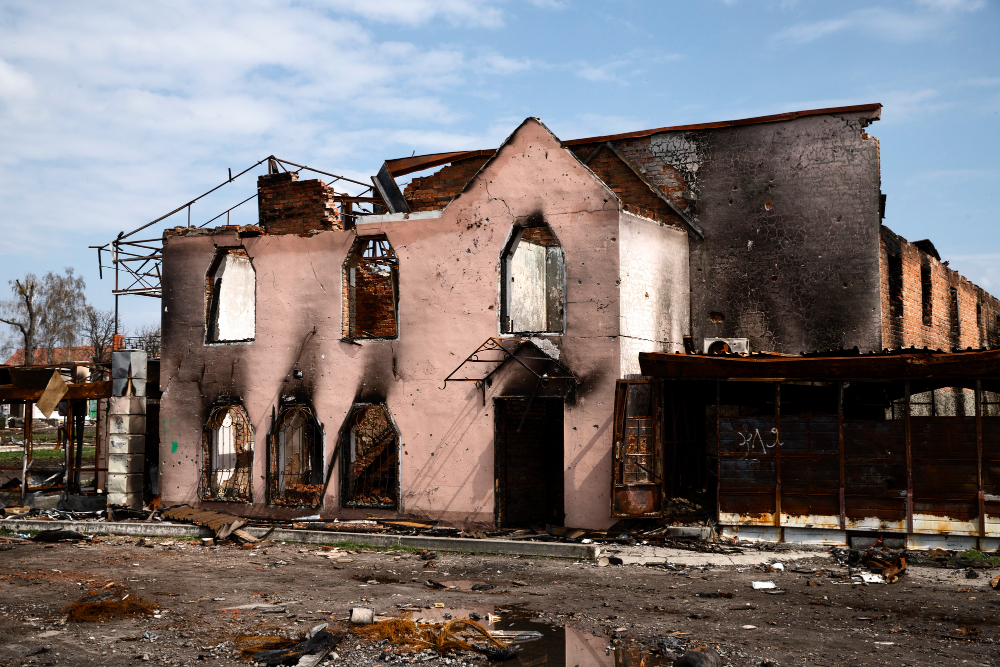 (888) 979-7969
(888) 979-7969
 (888) 979-7969
(888) 979-7969

Orlando's sunny skies and vibrant community make it a great place to call home. But beneath the palm trees and theme parks lies a reality every property owner should understand: this region faces serious risks when it comes to property damage. Storms, floods, and fires can strike with little warning, leaving homeowners and businesses scrambling to pick up the pieces.
Understanding the most common types of property damage in Orlando, FL can help you prepare, protect your investment, and know what to do if disaster strikes. Whether you're a longtime resident or new to the area, this guide will walk you through the threats you're most likely to face and what you can do about them.
Florida is known for its hurricanes, but storm damage in Orlando goes beyond just hurricane season. Thunderstorms, high winds, and hail can cause significant property damage throughout the year.
Hurricane season runs from June through November, and Orlando isn't immune to these powerful systems. While the city sits inland, hurricanes can still bring damaging winds, torrential rain, and widespread power outages. Roofs can be torn off, windows shattered, and trees uprooted.
Even weaker tropical storms can cause water intrusion, structural damage, and flooding that leads to costly repairs.
Orlando experiences frequent thunderstorms, especially during the summer months. These storms can produce strong wind gusts that damage roofs, siding, and fences. Flying debris can break windows or puncture walls, and lightning strikes can cause fires or damage electrical systems.
Though less common than in other parts of the country, hail does occur in Central Florida. Hailstones can dent metal roofs, crack shingles, and damage HVAC units. Even small hail can cause enough damage to warrant an insurance claim.
Flooding is one of the leading causes of property damage in Orlando, FL. The city's flat terrain, heavy rainfall, and proximity to lakes and wetlands make it particularly vulnerable.
Orlando receives an average of over 50 inches of rain per year. During the rainy season, intense downpours can overwhelm drainage systems and cause flash flooding. Water can quickly enter homes through doors, windows, and cracks in the foundation.
Hurricanes and tropical storms often bring storm surge and prolonged rainfall that lead to widespread flooding. Even if your property isn't in a designated flood zone, you could still be at risk during a major weather event.
Not all floods come from outside. Burst pipes, leaking water heaters, and malfunctioning washing machines can cause significant water damage inside your home. These issues can lead to mold growth, structural damage, and ruined personal belongings if not addressed quickly.
While storms and floods often steal the spotlight, fire damage is a serious concern for Orlando property owners. Fires can start from a variety of sources and spread rapidly, especially in older buildings or those with outdated electrical systems.
Faulty wiring, overloaded circuits, and aging electrical panels are common causes of house fires. Many older homes in Orlando weren't built to handle modern electrical demands, increasing the risk of fire.
Cooking is the leading cause of home fires nationwide, and Orlando is no exception. Unattended stoves, grease fires, and malfunctioning appliances can all lead to devastating fire damage.
Though less common in urban areas, wildfires can pose a threat during dry seasons, particularly in areas near brush or wooded regions. Embers from nearby fires can ignite roofs or vegetation around your property.
Florida is the lightning capital of the United States. Lightning strikes can start fires, especially if they hit a tree, roof, or electrical system. Even if a fire doesn't break out immediately, lightning can cause hidden damage to wiring and electronics.
Experiencing property damage is overwhelming, but taking the right steps quickly can make a big difference in your recovery.
Take photos and videos of all damage before you start cleaning up or making repairs. This documentation will be critical when filing an insurance claim.
Notify your insurer as soon as possible. They'll guide you through the claims process and may send an adjuster to assess the damage.
If it's safe to do so, take steps to prevent additional damage. This might include covering broken windows, tarping a damaged roof, or shutting off water to stop a leak.
Save all receipts for temporary repairs, hotel stays, and other expenses related to the damage. Your insurance policy may cover these costs.
Insurance companies don't always offer fair settlements. If your claim is denied, delayed, or undervalued, it may be time to consult with a property damage attorney who understands Florida law.
Prevention is always better than repair. Here are a few steps you can take to reduce your risk of property damage in Orlando, FL:
Property damage can disrupt your life and drain your finances. Whether it's a storm, flood, or fire, dealing with the aftermath is stressful enough without fighting an insurance company for the compensation you're owed.
If you need help with property damage in Orlando, FL, contact Ultra Property Damage for a legal consultation. Their team understands the challenges local property owners face and can help you navigate the claims process, negotiate with insurers, and recover the full value of your loss.
Don't settle for less than you deserve. Reach out today and take the first step toward rebuilding with confidence.